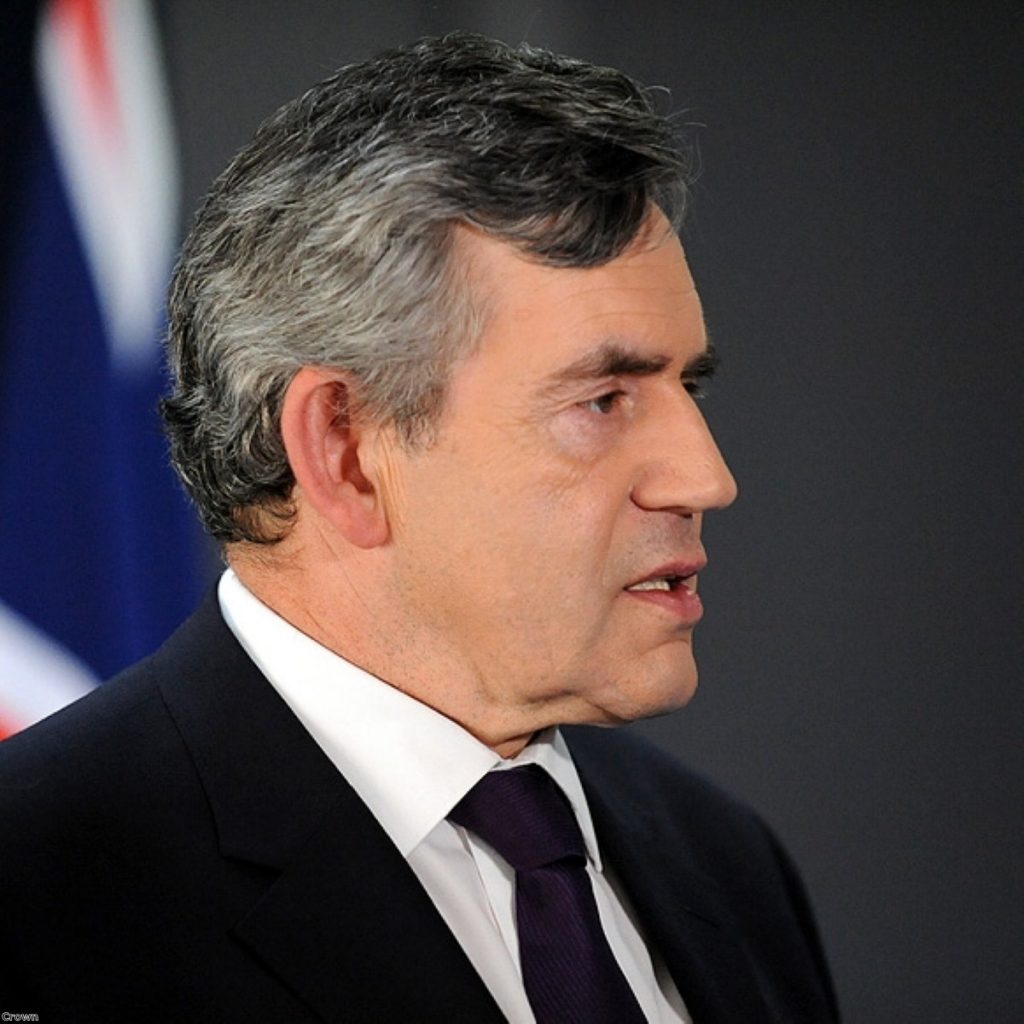Brown shores up Afghan support as aide resigns
By Liz Stephens
Gordon Brown gave a major speech defending the presence of British troops in Afghanistan today but it was overshadowed by the resignation of a senior aide last night, in protest over the conflict.
Eric Joyce, MP for Falkirk and parliamentary private secretary to defence secretary Bob Ainsworth quit the government yesterday evening. His resignation letter warned that public support for the war would disintegrate “unless politicians are seen to treasure those who fight for us”.
‘Dear Gordon’: Resignation letter in full


He stated in his resignation letter: “I do not think the public will accept for much longer that our losses can be justified by simply referring to the risk of greater terrorism on our streets.
“Nor do I think we can continue with the present level of uncertainty about the future of our deployment in Afghanistan.
“For many, it seems that Britain fights; Germany pays; France calculates; Italy avoids. If the US is seen as valuing each of these approaches equally then I think they may well end up shouldering the burden themselves.”
Mr Joyce was also apparently angry at the treatment of former army head Sir Richard Dannattby the government and in an article for the Channel 4 News website he wrote:
“Petty, back-channel attacks on respected senior officers are indistinguishable from attacks on the services as a whole.”
Mr Joyce’s resignation has not come as a total surprise – the Labour MP has been critical of the government’s treatment of the armed forces for a while now.
Last month he called the government’s decision to appeal against compensation awards for two wounded soldiers “bonkers”.
Liberal Democrat leader Nick Clegg said: “Eric Joyce confirms what I have been saying for a long time, our approach in Afghanistan is over-ambitious and under-resourced.”
In a response to Mr Joyce, the prime minister wrote: “Bob Ainsworth has already replied to you emphasising the importance of the effort in Afghanistan to defeating terrorism, and of supporting, at all times, our armed forces.
“I am determined that nothing will distract my government from this most vital of tasks.”
However, the aide’s resignation is likely to put pressure on the prime minister, who is already facing diminishing support for the war amongst the public.
In his speech today at the Institute of Strategic Studies, Mr Brown reaffirmed his belief that the conflict in Afghanistan is justified: “Each time I ask myself if we are doing the right thing by being in Afghanistan and if we can justify sending our young men and women to fight for this cause, my answer has always been yes.”
“A safer Britain needs a safer Afghanistan”.
Mr Brown said the government was setting “credible and deliverable objectives” in the campaign to “accelerate Afghanisation” and move from “mentoring” to “partnering” the Afghan army and police force.
“People ask what success in Afghanistan would look like. The answer is that we will have succeeded when our troops are coming home because the Afghans are doing the job themselves,” he said.
Mr Clegg said: “The situation in Afghanistan is on a knife-edge. Yet today we have heard little in the way of fresh, new thinking from Gordon Brown.
“After pursuing an overambitious and under-resourced strategy for eight years it’s hard to believe that increasing the training of the Afghan police and army will now do the trick. We need a bolder change of strategy to turn things around. When it comes to Afghanistan, we need to do things properly or not at all.”
The prime minister was expected to make the speech standing next to the new army head general Sir David Richards but the general was not present.
Fifty-two troops have now been killed since the start of July. More troops were wounded in action in Afghanistan in July than in the whole of 2006.

